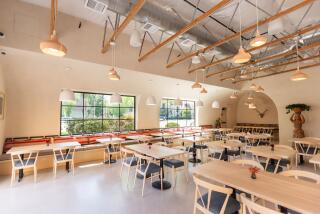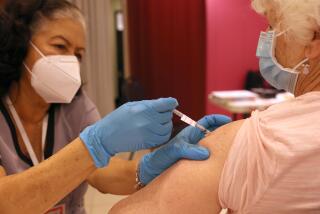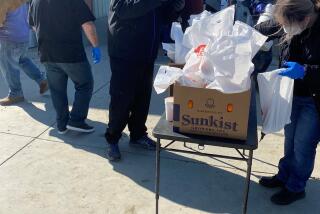A Salvadoran immigrant feared losing his food industry job. Now he’s dead of COVID-19
- Share via
Alisha Álvarez’s mind is filled with thoughts of her father’s happy spirit and the stories he told. José Roberto Álvarez, a man of medium stature with a thick mustache, was known for his work ethic and instilling in his children a love of others.
“It is so difficult to talk about him because I loved him so much,” Álvarez said of her father, who died after contracting COVID-19. He worked at one of the three food distribution facilities that were briefly closed last month by Los Angeles County public health authorities after outbreaks of the disease were detected.
He was “very affectionate; he never left me without giving me a hug, a kiss,” Álvarez said of the man known to some in his community as “Beto Mena.”
As California saw a surge in coronavirus cases after partially reopening its economy this summer, essential workers, many of them Latinos in the food industry, have been hit hard.
José Roberto was from San Miguel, El Salvador, and came to the United States in the early 1980s. An engineer by profession, he had served for the past two years as head of maintenance at Mission Foods Corp. in Commerce.
At the beginning of the pandemic, in March, he was going to work every day. In May, the company sent a letter notifying employees that someone had fallen ill with coronavirus infection.
“My mom and dad went to do the test and they both didn’t have it; they were negative,” Álvarez said.
In the following weeks, there was no official communication from the company, a leading distributor of tortillas, chips and salsas, that more workers had gotten sick, Álvarez said. In June, however, word began circulating among employees that some workers had contracted COVID-19.
On June 22, the 67-year-old José Roberto Álvarez, who had diabetes and high blood pressure, began showing some COVID-19 symptoms.
“In this situation,” Álvarez said, “he was afraid of saying that he couldn’t come to work, because he believed that he would be fired.”
Los Angeles County Department of Public Health officials reported that at least 40 people tested positive for COVID-19 at Mission Foods Corp., while at least 60 were identified at S&S Foods Corp. in Azusa and at least 47 at Golden State Foods Corp. in Industry, according to the county.
Barbara Ferrer, county health director, said those three companies were closed at the end of July for failing to report their coronavirus outbreaks.
“Our inspector asked them to make some modifications to really improve their infection control protocols at all three sites,” Ferrer said last week.
All three businesses have since reopened. In a statement, Mission Foods said it had stepped up measures to enhance worker safety in the face of the pandemic. The Times has reported that the county is examining the deaths of two employees at Mission Foods Corp.
In a written statement sent to The Times, Mission Foods said that it had taken appropriate measures to protect the health and safety of its nearly 600 employees at the Commerce facility and had “worked hard” to keep all employees informed about confirmed cases of coronavirus infection there.
“We have also encouraged and allowed high-risk individuals who may be concerned about contracting COVID-19 to take leaves of absence. This includes at our Olympic facility where we have high-risk employees who have been given extended leave due to COVID-19,” a spokesperson said, referring to Olympic Blvd. in Commerce.
On June 28, a week after José Roberto began having symptoms, he and his wife were tested again. This time both tested positive.
After his infection was diagnosed, José Roberto remained isolated at home. In addition to him and his wife, another daughter, who suffers from a chronic disease, also became infected.
Six days later, on July 4, he had trouble breathing and was taken to the hospital. The next day, he was admitted to the hospital’s intensive care unit. He spent two weeks connected to a respirator and on July 20 he died.
“My dad has been a partner for 35 years to my mom,” Álvarez said. “It is hard not to have him here. He was everything for us.”
The family is working to create the Beto Mena Foundation, a nonprofit that serves the community, as a way to honor José Roberto. At the same time, by publicizing his case, they are trying to give a voice to the Latino community, many of whom are forced to go to workplaces where there is a risk of contagion.
According to Óscar Ramírez, a lawyer for the Álvarez family who is investigating the situation, Mission Foods “did not reveal a massive outbreak to all the workers” as was its obligation.
“If there is an outbreak of COVID-19 in a place of employment,” said the lawyer, “they must disclose it to their workers so they know, and not intentionally hide it, which is what happened here.”
Álvarez said her father’s death could serve as an example to other workers, encouraging them to have strength and, perhaps, help other families avoid tragedy.
“There are other families who work there,” she said, “and I want people who are in that situation to have a voice.”
More to Read
Sign up for Essential California
The most important California stories and recommendations in your inbox every morning.
You may occasionally receive promotional content from the Los Angeles Times.










